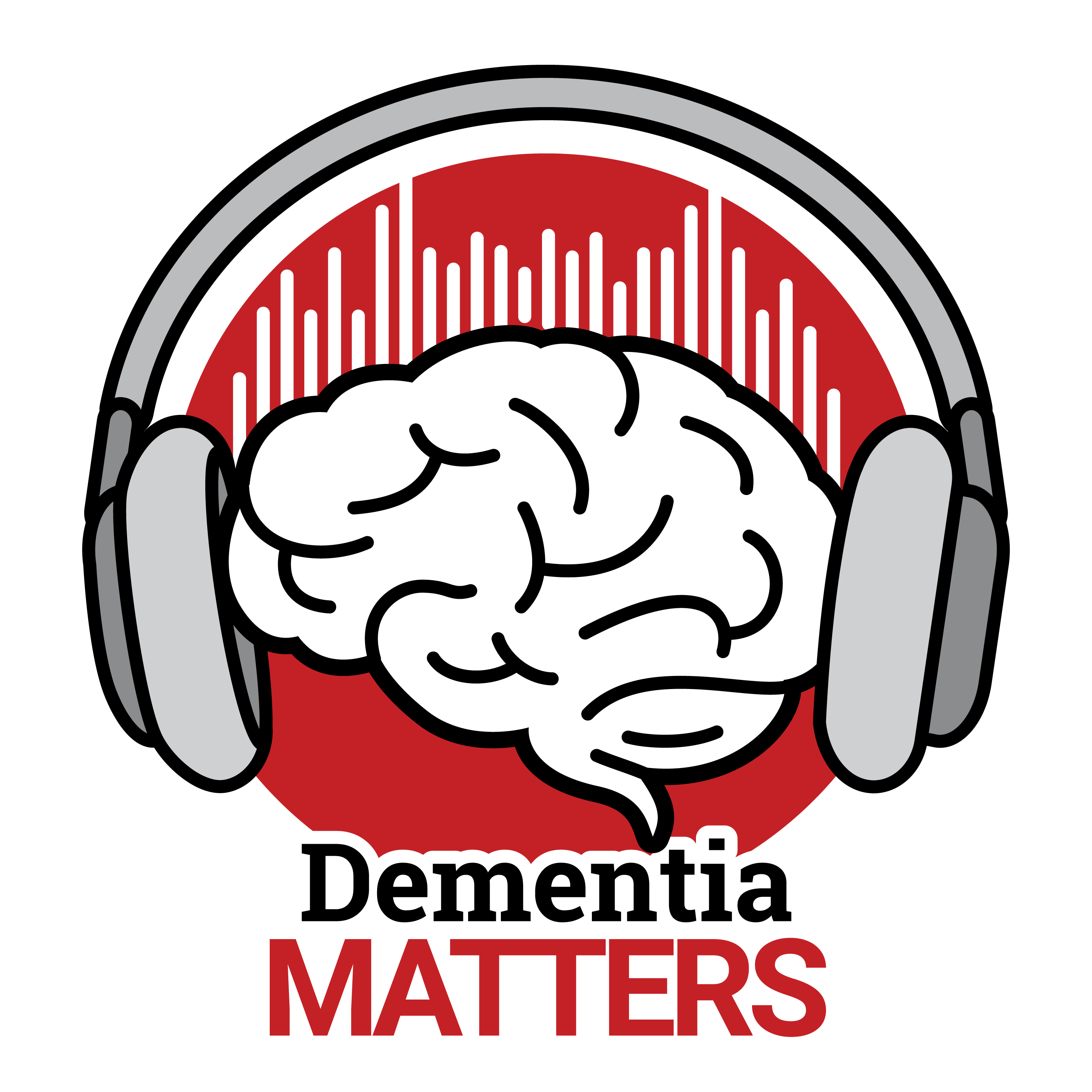

Dementia Matters
Wisconsin Alzheimer‘s Disease Research Center
Dementia Matters is a podcast about Alzheimer‘s disease and other causes of dementia. Creator and host Dr. Nathaniel Chin interviews leading scientists and caregiving experts to bring listeners the latest in Alzheimer’s disease news, research and caregiver resources. Brought to you by the Wisconsin Alzheimer’s Disease Research Center, find show notes and more resources at adrc.wisc.edu/dementia-matters.
Episodes
Mentioned books

Nov 6, 2018 • 18min
The Triumphs and Challenges of Being a Dementia Caretaker
This week, we have a very special episode featuring former Governor of Wisconsin, Martin Schreiber. Governor Schreiber has been a widely outspoken advocate for awareness of Alzheimer's disease and dementia. He discusses the many beautiful and difficult moments of being a caregiver for his wife, who was diagnosed with Alzheimer’s disease more than a decade ago.
Guest: Martin Schreiber, Former Governor of Wisconsin (1977-1979), Former Lt. Governor of Wisconsin (1971-1977)

Oct 23, 2018 • 14min
Finding the Link Between High Blood Pressure and Dementia
Preventive cardiologist Dr. Heather Johnson joins us this week to discuss how keeping a healthy cardiovascular system can reduce chances of developing dementia. She also discusses her MyHEART study, which aims to help young adults live heart-healthy lives.
Guest: Dr. Heather Johnson, cardiologist with special interest in preventive cardiology, University of Wisconsin School of Medicine and Public Health

Oct 9, 2018 • 13min
Approaching Alzheimer’s Disease as a Preventable Condition
Rarely are the steps to prevent Alzheimer's disease and dementia discussed thoroughly. On this week's episode, Dr. William Shankle, a neurologist specialized in the diagnosis, treatment and management of Alzheimer’s disease, discusses how management of lifestyle and other health conditions can reduce the rate of accumulation of Alzheimer’s disease in the brain.
Guest: Dr. William Shankle, Medical Director, Shankle Clinic, Newport Beach, California.

Sep 25, 2018 • 16min
Finding Community Resources after a Dementia Diagnosis
The quest for both patient and caregiver resources in your own community can be difficult. Bonnie Nuttkinson of the Alzheimer’s Association tells us the many different free resources for dementia patients and their caregivers.
Guest: Bonnie Nuttkinson, Program and Advocacy Manager, Alzheimer's Association South Central Wisconsin Chapter

Sep 11, 2018 • 12min
New Approaches Yield Promise for Future of Alzheimer’s Disease Drug Trials
Guest: Sanjay Asthana, MD, associate dean of gerontology, University of Wisconsin School of Medicine and Public Health, and director and founder, Wisconsin Alzheimer's Disease Research Center
For decades, researchers from around the world have been working to find a cure for Alzheimer’s disease. Dr. Sanjay Asthana explains the challenges Alzheimer’s disease drug trials have faced and introduces us to new, promising approaches to stopping or delaying the disease. 9/11/2018

Aug 28, 2018 • 12min
Key to Alzheimer’s Disease Cure May Lie in Early Detection
Guest: Dr. James Lah, MD, PhD, Associate Professor of Neurology, Alzheimer's Disease Investigator, Emory University
Research has shown Alzheimer's disease can be present in the brain decades before symptoms arise. Dr. James Lah discusses how he believes Alzheimer’s disease prevention should start in young and middle adulthood and shares with us what his vision of a cure might look like. 8/28/2018

Aug 14, 2018 • 13min
The Science of Sleep and Brain Health
A sleep scientist explains the importance of sleep to your brain, shares what the scientific community knows about the connections between sleep apnea and brain health, and offers tips for healthy sleep. Guest: Kate Sprecher, postdoctoral research associate, University of Colorado at Boulder

Jul 31, 2018 • 13min
Caregiver Strategies and the Importance of Changing the Way We Think about Alzheimer’s
Guest: Suzanne Bottum-Jones, Registered Nurse, Children’s Author, Behavioral Consultant
After more than 15 years of working with behavioral management strategies and symptoms associated with dementia, our guest has turned her focus to educating families and caregivers who are affected by this disease. She provides tips that every caregiver should know and sheds light on why it was important for her to write a children’s book that addresses Alzheimer’s disease.

Jul 17, 2018 • 15min
The Link Between Neighborhood Disadvantage and Health Outcomes
Guest: Dr. Amy Kind, MD, PhD, Associate Professor of Geriatrics, University of Wisconsin School of Medicine and Public Health, Director, VA Dementia Care Clinic, Investigator, Wisconsin ADRC
Social determinants of health play a big role in our overall well-being. Unfortunately, too often we fail to recognize the impacts that these factors have on our brains and overall health. Dr. Amy Kind and her research team at the University of Wisconsin developed a tool called the Neighborhood Atlas to visualize neighborhood disparities and help facilitate change.
Click here to take our podcast listener survey.

Jul 3, 2018 • 18min
Delirium and Its Pertinence to Dementia
Guest: Dr. Elizabeth Chapman, geriatrician at UW Health specializing in acute care geriatric medicine and delirium in hospitalized patients
Delirium can be caused by a range of conditions and can take on many different forms. One consistency, however, is its relation to an increased risk for developing dementia. Dr. Elizabeth Chapman speaks on the connections between these conditions and offers some useful tips to help prevent delirium


